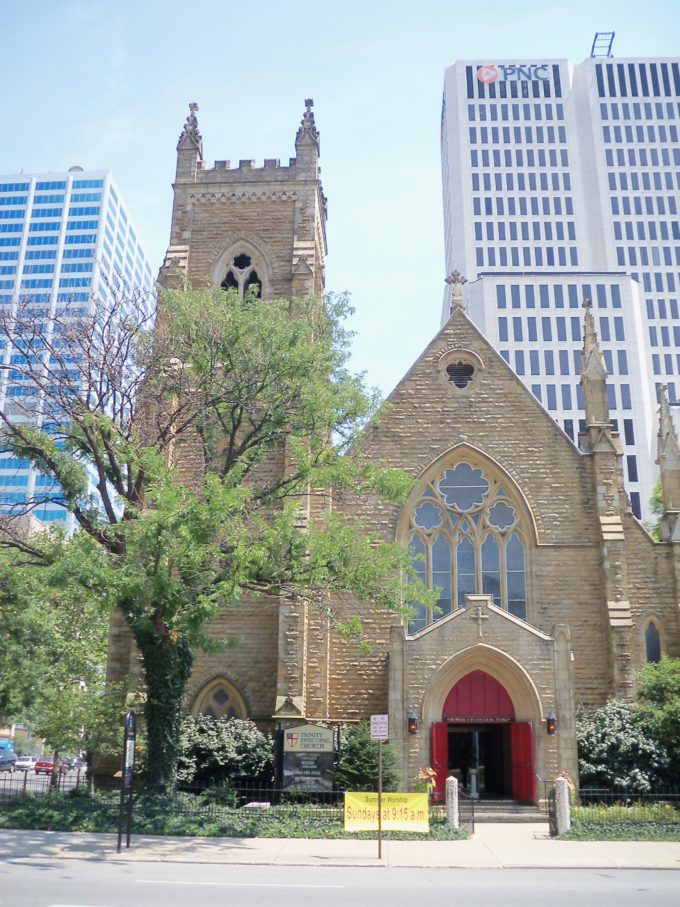
Tuesday, 28 January 2020
…and did not spare the ancient world, but saved Noah, one of eight people, a preacher of righteousness, bringing in the flood on the world of the ungodly; 2 Peter 2:5
Peter now turns to a second example of God’s punishment upon the wicked, speaking of it as a completely separate event than that of the previous verse. In this, he says, “and did not spare the ancient world.” This is speaking of the world at the time from Adam to the Flood of Noah. At that time, the world was in a completely different state than it is in today. That ancient world, as is learned in Genesis 6, had become completely wicked. There was no longer a remedy for the masses, and so the Lord took action –
“Then the Lord saw that the wickedness of man was great in the earth, and that every intent of the thoughts of his heart was only evil continually. 6 And the Lord was sorry that He had made man on the earth, and He was grieved in His heart. 7 So the Lord said, ‘I will destroy man whom I have created from the face of the earth, both man and beast, creeping thing and birds of the air, for I am sorry that I have made them.’ 8 But Noah found grace in the eyes of the Lord.” Genesis 6:5-8
As it says in Genesis, and as Peter confirms, “Noah found grace in the eyes of the Lord,” and so God “saved Noah, one of eight people.” The word “saved” is not a good translation. The word is phulassó, and it signifies to be kept or spared. Someone is saved out of a disaster. Noah was spared from a disaster, having been kept safe by the Lord before it occurred. He was told to build an ark, and when the ark was built, the Lord shut the door. Thus, he was “preserved,” or “spared.”
The eight were Noah and his wife, and his three sons and their wives. But the highlight is on Noah because he was “a preacher of righteousness.” The word used by Peter signifies a herald, which is exactly what a preacher should do. They are to call out as a town-crier words of righteousness.
The amazing thing to consider is that Noah was such a herald, calling out for righteousness, and yet nobody was taken aboard the ship with him. None were found faithful enough to simply admit his defilement and asked to be kept from the judgment which Noah surely proclaimed was coming. But the use of the number eight is a beacon of hope all by itself. In the Bible, the number is consistently used to signify “new beginnings.”
Through this single family, a new world would appear. However, in order for this to occur, there must be judgment upon those left behind. And so, Peter ends with the fact that though Noah was spared, God was also “bringing in the flood on the world of the ungodly.” While Noah was spared, those who failed to heed were swept away. The entire earth, everything that had the breath of life, was brought to an end.
It must be considered here that the verse speaks of “the ancient world” as a separate event than the previous verse which spoke of the “angels who sinned.” The two are separate events. To tie them both together into one account in order to justify that Genesis 6 is speaking of angels sleeping with human women is untenable. The implication is that those angels fell before the establishment of the ancient world where man would dwell. And this is exactly what is seen in Genesis 3. The serpent, elsewhere noted as “Satan” and the “devil,” was already a fallen being. This verse in 2 Peter does not support the angel/human hybrid theory. Rather, it fully speaks against it.
Peter’s words of this verse are given to clearly show that God’s judgment can be expected. If He destroyed the entire world once, there is no reason at all to think that He will somehow tolerate our own unrighteous conduct, and rejection of the gospel which came at the high cost of Calvary’s cross.
Life application: As has been demonstrated several times in the New Testament – including by Jesus’ own words – the Flood of Noah is taken as a literal truth by Peter which we can rely on. It is not a myth which was invented to project a moral lesson. In fact, the entire flood account is considered trustworthy, not only that it occurred, but that there was a real ark, a real man named Noah, and seven people with him.
Nothing anywhere in Scripture or in the geologic record demonstrates that this was a myth. Rather, the evidence for a flood is found throughout the world –in the legends of every major people-group on earth, within the geologic record, within the mitochondrial DNA of humans, and even in the alphabet of the Chinese people – an alphabet which reaches back to antiquity, even to the time of Babel itself.
We have every reason to be sure that God’s judgment occurred exactly as Peter proclaims, and that his previous and coming analysis on the judgment of those who falsely portray the gospel will also be judged. Peter says that despite the righteous preaching of Noah, the people of the world rejected his words. Because of this, there was no remedy, and God destroyed the world of unrighteousness.
Likewise, man is again setting himself up for destruction. The world of today has a testimony far superior to that of Noah – the gift of God’s own Son. Despite this ultimate demonstration of love, the world is rejecting God’s offer and is ripe for His wrath.
O God, may our hearts break for the lost souls of the world. May Your glorious gospel go forth and snatch precious souls from the sure destruction to come. Use us, O God, use us as instruments of Your righteousness and for the sake of Your gospel of peace. May the nations be glad when they hear the good news of Jesus. Amen.




